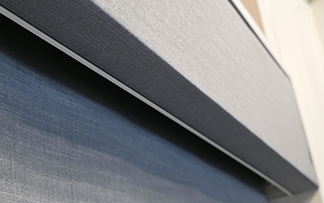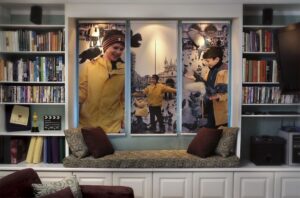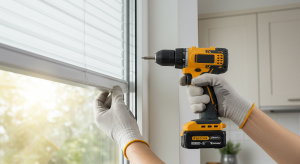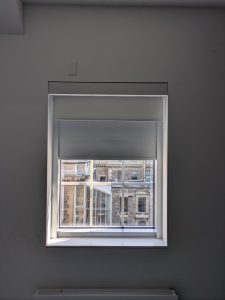Table of Contents
When most people think of window treatments, valances probably aren’t the first thing that come to mind. But if you’re aiming for a truly polished, professional-looking shade installation, the valance is the unsung hero of the whole setup. Whether you’re going for clean lines, seamless hardware coverage, or a touch of modern minimalism, choosing the right valance for your window shades can make a world of difference. Here’s how to do it right.
What Is a Valance? (And Why It Matters)
In the world of window shades, a valance is a top treatment designed to conceal the mounting hardware, headrail, and roller mechanism. Think of it as the finishing frame on a piece of art—not strictly necessary, but it ties everything together.
Unlike the flowing fabric valances used over curtains, valances for window shades are typically more structured, minimalist, and functional. They add visual weight, create a clean header, and help your shades blend seamlessly into the room’s design. Without one, even the most high-end roller shade can look unfinished.
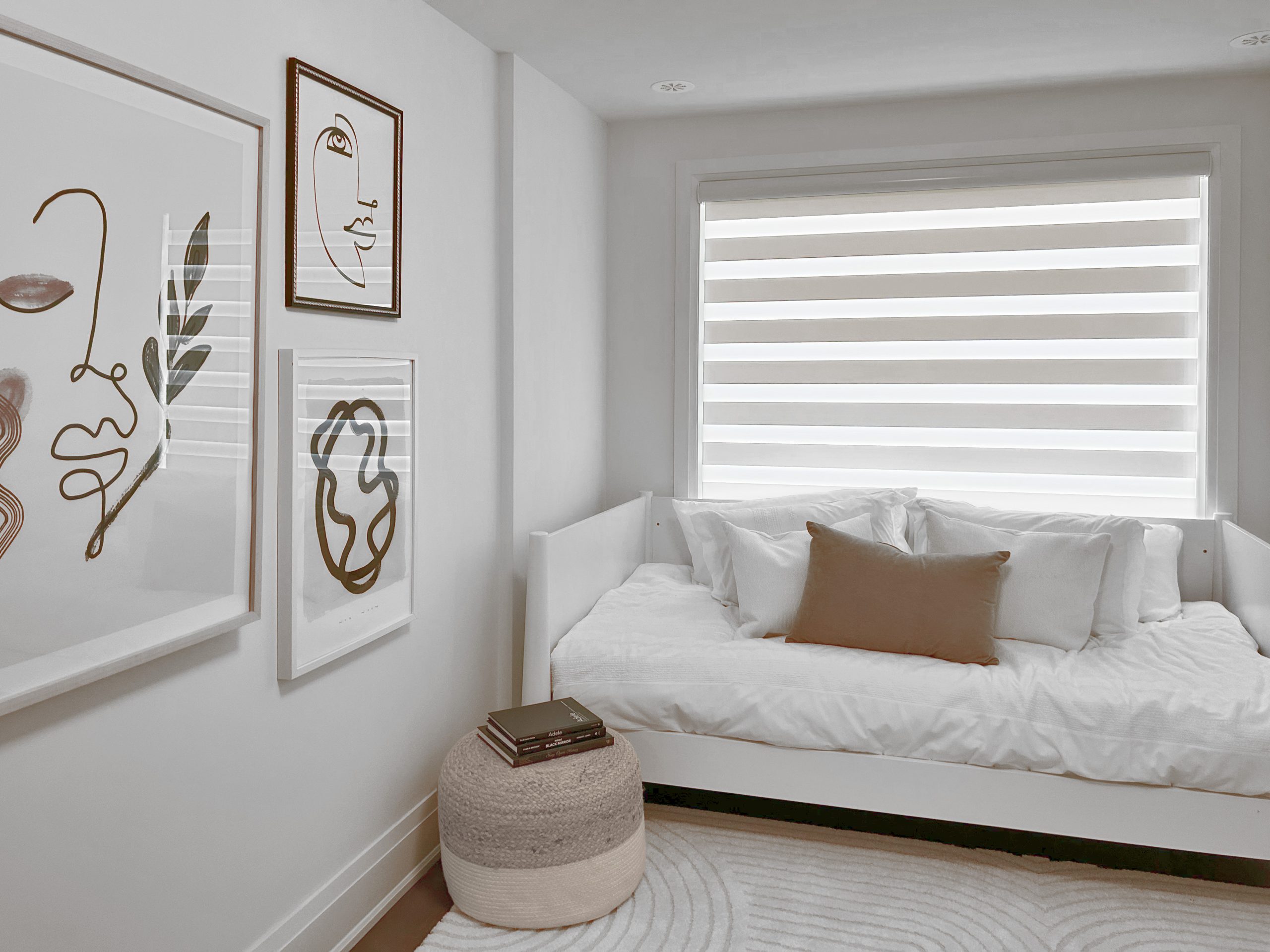
Types of Valances for Window Shades
There isn’t just one “right” valance for window shades—it all depends on your space, your style, and the specific shade you’re working with. Let’s break down the top options:
Cassette Valances
Cassette valances are fabric-wrapped or exposed metal casings that encase the top roll of the shade. Sun Glow offers several cassette options:
Square Cassette: Clean and angular; perfect for modern interiors.
Curved Cassette: A softer silhouette for a slightly more transitional look.
Compact Square/Curved Cassette: Same profiles, smaller size for more discreet installs.
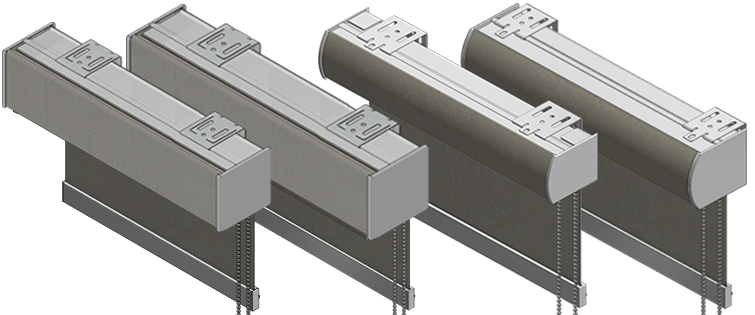
Each cassette can be wrapped in the same fabric as your shade or left in a finish like white, black, linen, or anodized aluminum.
Fascia
Fascia is a sleek aluminum cover that snaps over the front of the roller, leaving the bottom exposed. It’s popular in commercial or ultra-modern spaces where function and clean lines matter most. No fabric-wrapping here—just minimal, architectural edge.
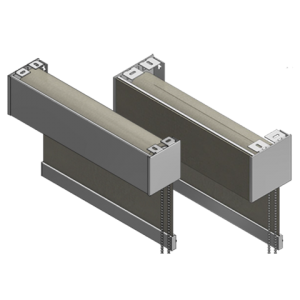
Open Roll (No Valance)
The open roll is exactly what it sounds like: the shade is mounted with no top treatment. While it can work in utility spaces or contemporary lofts where exposed mechanics are part of the charm, most homeowners find it a bit too raw for living areas. You’re also missing out on the dust protection and light-blocking perks that valances provide.
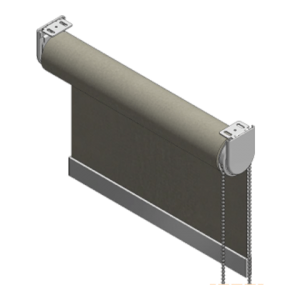
Style vs. Function: What a Valance Adds
Valances aren’t just about looking good—they pull double-duty in form and function. Here’s why they matter:
Hide the hardware – No more visible rollers, screws, or brackets.
Create a finished look – Adds structure and cohesion to your window.
Protect the shade roll – Reduces exposure to dust, fading, and sun damage.
Block top light gaps – Especially important for bedrooms and media rooms. Blackout Fabrics work especially great for this.
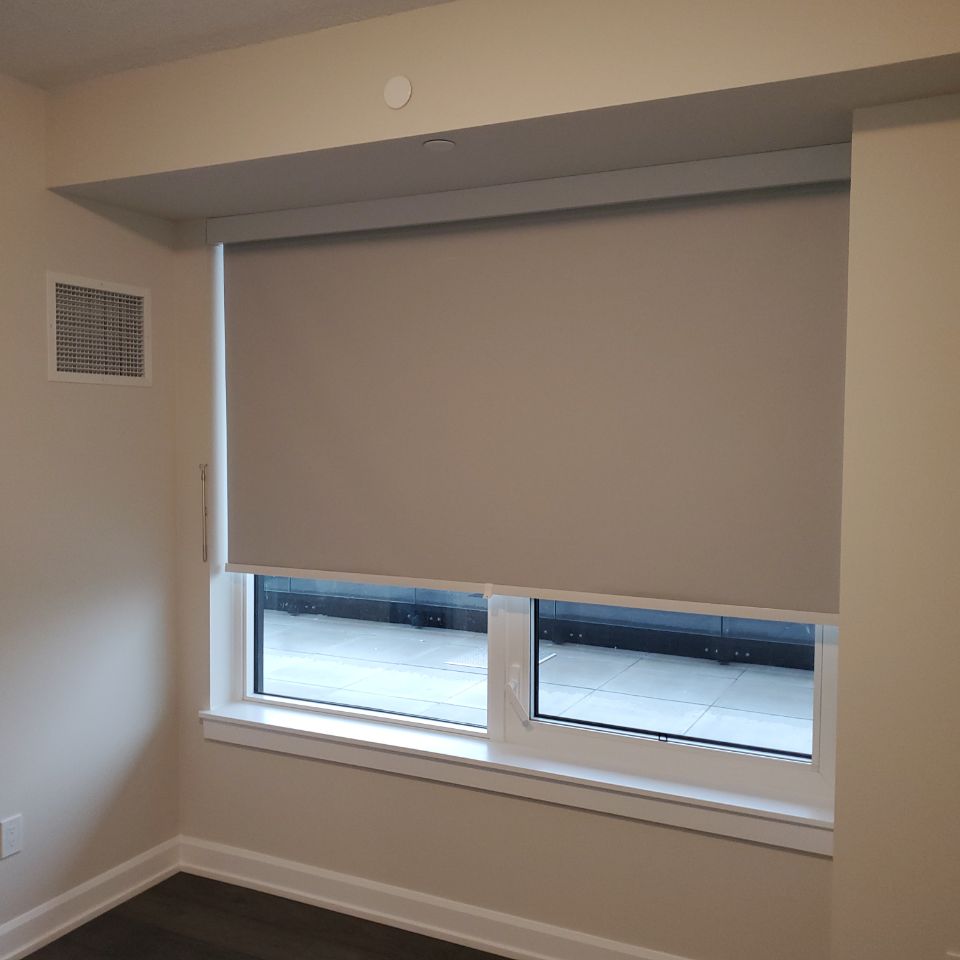
How to Choose the Right Valance for Your Space
Choosing the right valance comes down to how it will interact with your room’s function, aesthetics, and layout:
Shade Type: Roller, zebra/interlude, dual, and solar shades all pair differently. Dual shades benefit most from a cassette or fascia for layered concealment.
Design Style: Square cassettes feel bold and modern; curved options soften the look. Fascia pairs well with industrial or minimalist spaces.
Finish Coordination: Match the cassette finish with your window trim, baseboards, or even cabinetry hardware.
Mounting Style: For inside-mount installations, a compact cassette may offer a cleaner fit. Outside mounts can accommodate larger cassettes or fascia.
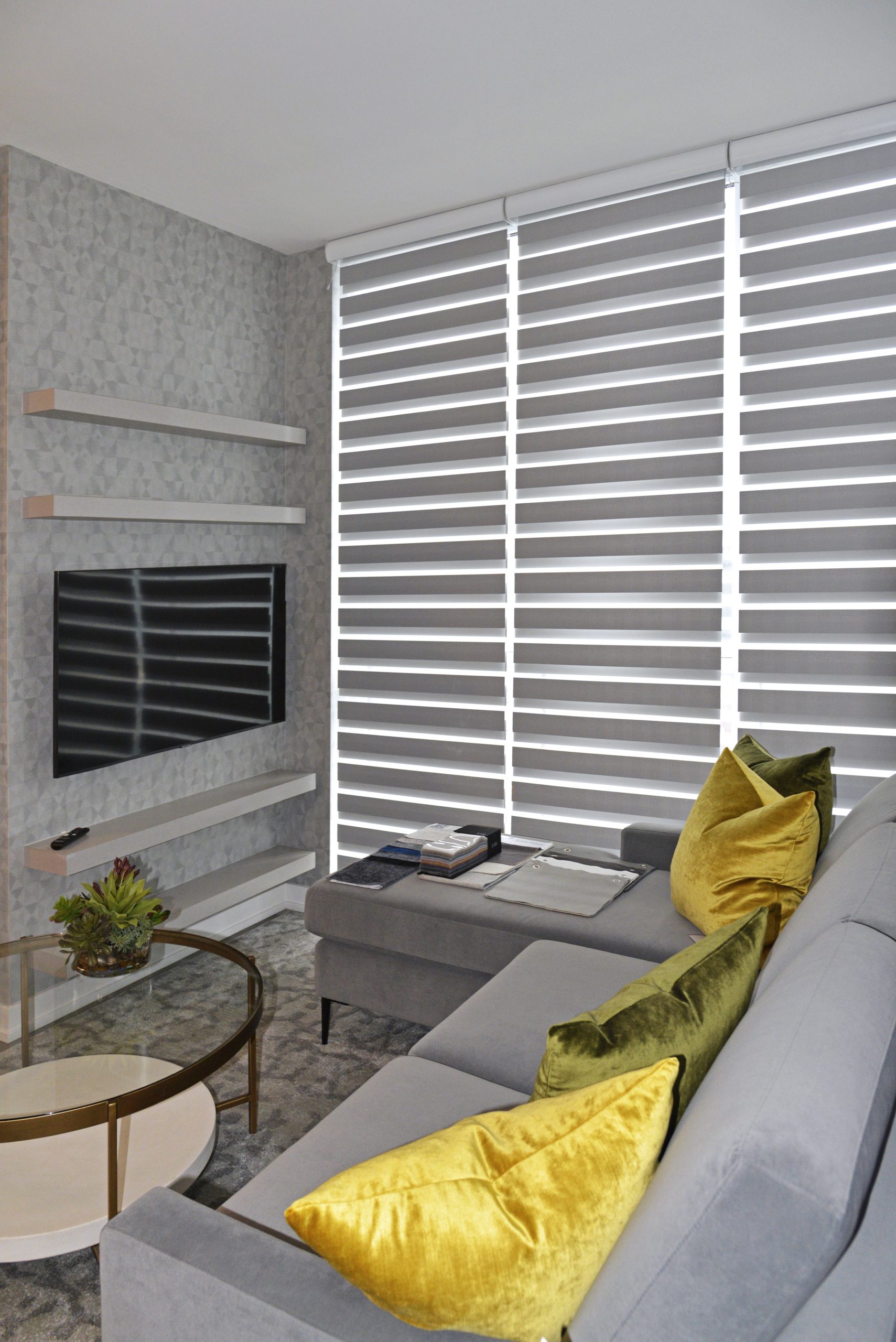
When to Use a Valance—and When Not To
Valances are a great add-on for most spaces, but here’s when they make the most sense:
Use a Valance When:
You’re a homeowner aiming for a custom, built-in look
The mounting hardware is visible and breaks the room’s aesthetic
You want to enhance light control and reduce glare
The space calls for a cohesive, upscale feel
Skip the Valance When:
You’re a renter who can’t install permanent hardware
You’re covering utility or garage windows where design isn’t a priority
- You’re intentionally going for an industrial or exposed hardware vibe
Valances in Real Spaces: Room-by-Room Use
Let’s break it down by room:
Kitchen: Keep it clean and simple—a compact square cassette in white or anodized works perfectly.
Bedroom: Go with blackout fascia or fabric-wrapped cassettes to reduce top light leakage.
Home Office: Match to desk hardware or cabinetry for a built-in effect.
Living Room: Choose curved cassettes in a finish that blends with your walls or window trim.
For a room by room guide check out our blog on Shades for every room
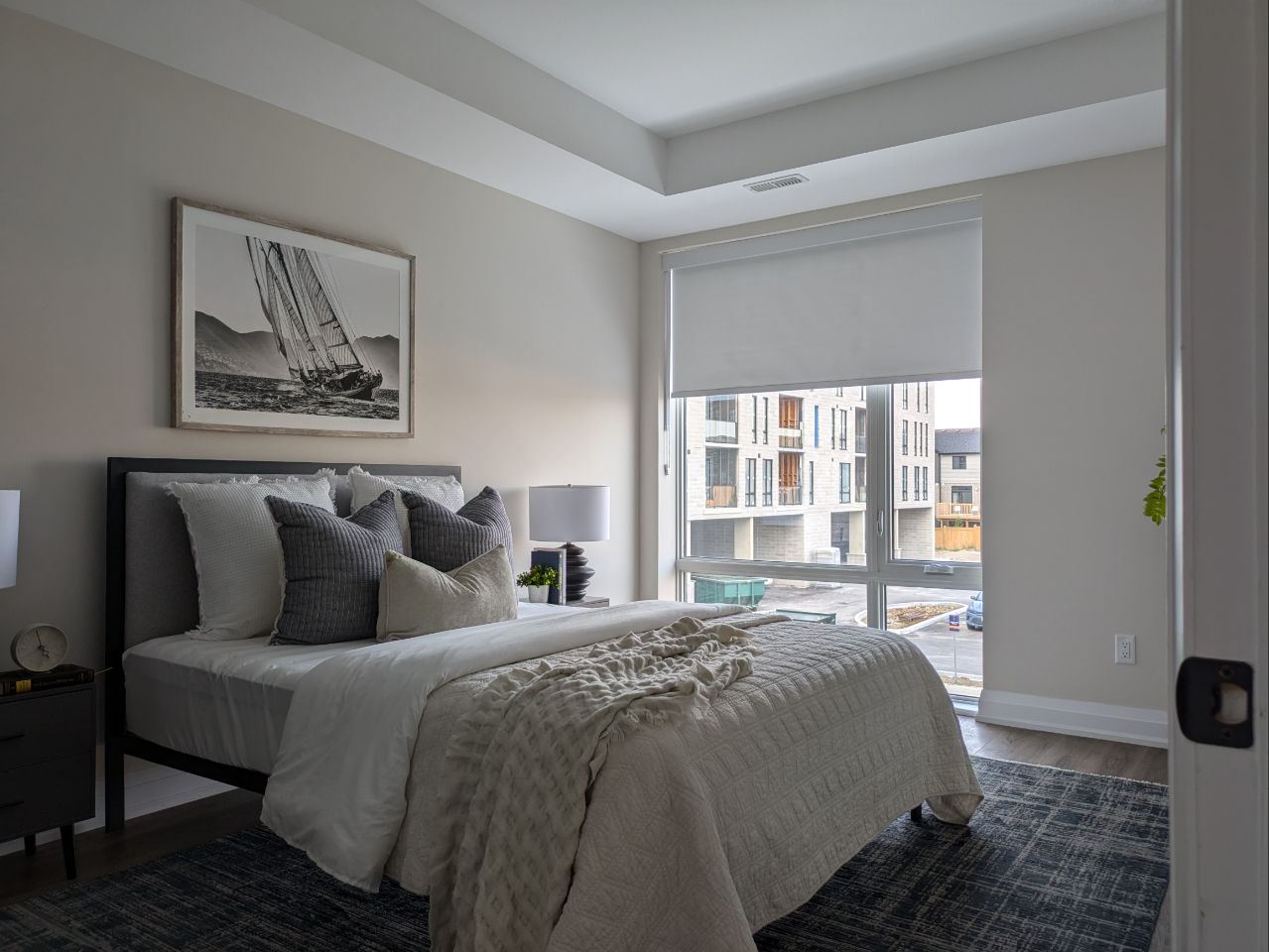
Pro Tips for a Designer Look
Finish Coordination: If your trim is white, match it. If your cabinet hardware is matte black or brushed metal, mirror that.
Use Consistent Styles: In open-concept layouts, repeat the same valance style throughout for visual flow.
Add Depth with Layering: Pair your valance with soft drapes or sheer panels to add volume and elegance.
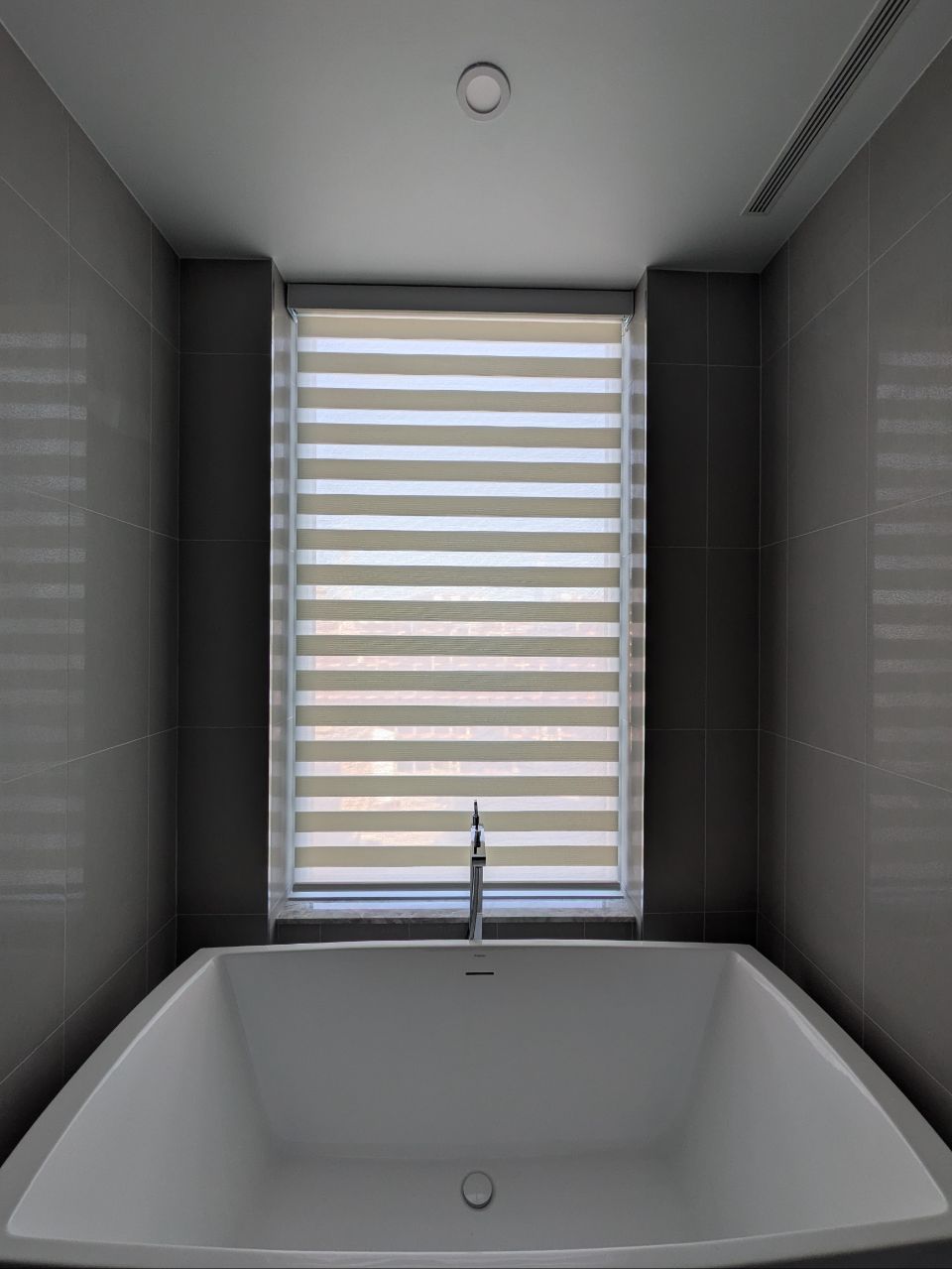
Final Thoughts
Adding a valance to your window shades isn’t just about aesthetics—it’s about completing the picture. Whether you’re installing new roller shades or upgrading existing ones, choosing the right valance for window shades gives your space that intentional, elevated feel. Not sure which one fits your setup best? Our team can help you choose the perfect match during your shade selection or installation process.
Ready to go from basic to built-in? A valance might be the simplest way to upgrade your windows without touching a single wall.

